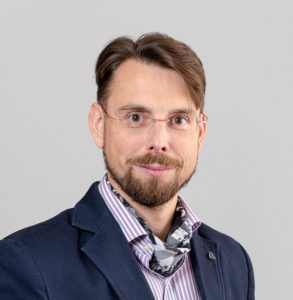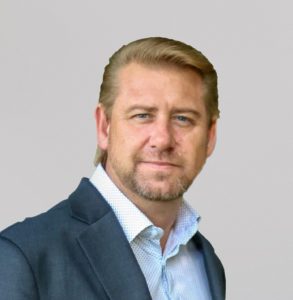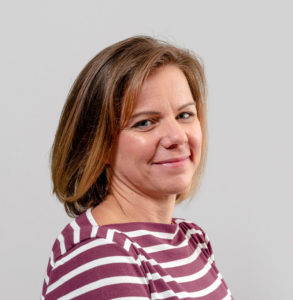Riskonet’s new white paper:
Mei 9, 2023

A need for clarity and consistence in recommendations for insurers
When insuring business premises and installations, insurers are increasingly relying on third-party advice and recommendations. Acting as the eyes and ears of insurers, engineers and inspectors are playing a key role in this process. Unfortunately, there is little consistency or clarity in the way that advice and recommendations are formulated. This is creating uncertainty and confusion among the business community, as well as resulting in a low implementation rate. Riskonet has published a white paper that both identifies this problem and suggests ways in which it can be improved.
In a recently published white paper entitled “From recommendation to acceptance” Riskonet describes how the insurance market has hardened during the past few years. Insurers have become more vigilant for potential risks and have therefore significantly tightened the reins of their acceptance policy. The advice and recommendations of engineers and inspectors employed by insurers have always played an active role. But in today’s market they seem to have increasingly taken on a disproportionately important role in determining the coverage and premiums of insurance policies. There is a lack of consistency in the recommendations and advice that are given. Riskonet has noted that the assessments presented by experts tend to be rather subjective. Inspectors often adopt an individual approach, which certainly doesn’t make interpretation any easier.
The real world, of PPG
This is abundantly clear in the real world, as is succinctly illustrated by PPG in Riskonet’s white paper. “I sometimes have problems with the lack of consistency,” concedes Uusje Asser, a risk manager at PPG Europe. “One person might put the emphasis on one aspect while another will find a different element more important. There can be big differences, depending on just who visits you. One inspector might be much stricter than another, which can suddenly put a completely different complexion on how our risks are assessed. I can appreciate that there can be a difference between how two insurers see the same risks. They are, after all, only human. But their judgment can sometimes seem a bit arbitrary. And occasionally there are even different schools of thought internally within the same insurer. There doesn’t seem to be a clear line.”
“That’s how it can be done. At Riskonet we don’t think there is enough of this kind of collective thinking about solutions in the Netherlands. So let’s try to bring about change. Together”
Riskonet’s Ron de Bruijn
Recommendations or requirements?
Another problem is that recommendations are increasingly being presented as requirements, thereby influencing the acceptance of an insurance policy. It can lead to confusion and uncertainty, with insurers sometimes dictating what feel like wish lists to clients and thereby winning themselves few friends. Appending a pile of documents to an insurance dossier fuels uncertainty and makes it increasingly difficult for clients to know where they stand.
Frustration and the erosion of confidence
All this is a source of frustration for companies. It undermines clients’ confidence in their insurers and sometimes obliges them to incur costs for measures that will have little effect on the risks they are exposed to, risks that they have to insure. There is a clear need for better communication and clarity on which measures can be considered optional and which ones are mandatory requirements. There is insufficient space for dialogue between insurer, broker and client about possible alternatives. This leads to misunderstanding and confusion, and, eventually, the erosion of confidence in insurers.
Restore trust, improve communication
The restoration of trust and better communication calls for a degree of consistency. However, it must also be sufficiently clear what has to be done, and why. While insurers must not align one another’s acceptance criteria and policies, they should certainly aim for more consistency when it comes to advice and requirements. Clients will then feel that they are being taken seriously. But this will only be possible if the people making the recommendations make more effort to put themselves in the shoes of the recipient. Proactive consultation will make it possible to arrive at a solution that embraces an effective, equal and cost-efficient approach to risks. To this end, Riskonet makes several suggestions in the white paper.
How dialogue can make things better
The white paper also describes a promising example of how things can change for the better. When it comes to recommendations, food group Cosun has undergone a veritable metamorphosis during the past five years. Jeroen Helders, Group Treasurer & Insurance Risk Manager, explains that it is now mainly Cosun itself that makes these recommendations, which they regularly discuss and check with the insurer. It is an approach that has led to more clarity, better insurability and lower premiums. And Helders is more than satisfied with the way his organisation now approaches recommendations. “Cosun’s standards have now become leading. This is something I coordinate with the insurer and after getting their agreement we know exactly where we stand. It means that we take a proactive stance rather than a passive one. And because clear progress is seen to be made, the insurer also gets what it wants. The insurer sees the risks diminishing and gets to work with a company that assumes responsibility – often going even further. And visits made by inspectors add much more value.”
“That’s how it can be done,” concludes Riskonet’s Ron de Bruijn. “At Riskonet we don’t think there is enough of this kind of collective thinking about solutions in the Netherlands. So let’s try to bring about change. Together.”





